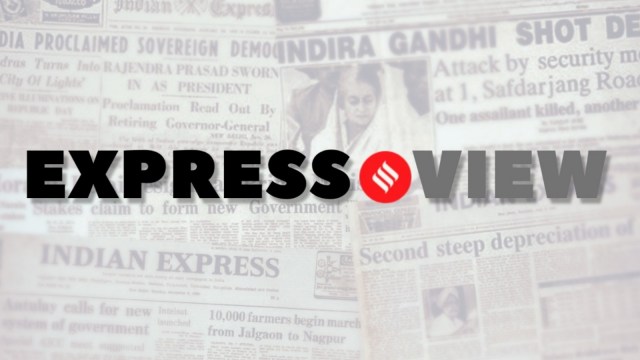
In 2018, in his first term, US President Donald Trump had spelt out, in his typically blunt style, the sense that Rawalpindi and Islamabad had taken advantage of Washington: “The United States has foolishly given Pakistan more than 33 billion dollars in aid over the last 15 years, and they have given us nothing but lies & deceit, thinking of our leaders as fools… they give safe haven to terrorists”. This week, he said: “I love Pakistan”. It would be simplistic to view the unprecedented lunch meeting at the White House between Trump and General Asim Munir — the first time a military leader who is not head of state in Pakistan has been accorded the honour — as a major u-turn. Indeed, India-US ties have been steadily deepening over the last three decades, based on a convergence of economic and strategic interests and shared values, even as the US-Pakistan relationship has grown more volatile. That said, the current moment in international relations is one of flux and Delhi must tread carefully.
The Pahalgam attack underscored the grave national security threat that Pakistan-sponsored terrorism continues to present for India. With Operation Sindoor, Delhi has made it clear to both Rawalpindi and the world that it will pierce the shield of “proxies” and not give in to Pakistan’s nuclear blackmail. India has raised the costs of terror in order to ensure that such attacks on its soil are not carried out with impunity. Communicating the new normal it has etched with Pakistan after Pahalgam to its friends abroad is Delhi’s challenge. To be sure, Delhi cannot control who Trump chooses to engage, and for what reasons. Pakistan’s geography — it shares a 900-km border with Iran — may make it an attractive tactical partner for the US in the current Israel-Iran war. There is speculation that Pakistan’s rolling out the red carpet for the privately-owned US cryptocurrency firm, World Liberty Financial (WLF), may have helped ingratiate Munir to the White House — Donald Trump Jr has close ties with WLF. A White House spokesperson has claimed that Munir has proposed Trump for the Nobel Peace Prize for his self-proclaimed role — firmly denied by India — in the post Op Sindoor cessation of hostilities. For India, though, the question is less why the Munir-Trump meeting, and more about how to ensure that the red lines it has laid down are respected, including by the US.
Just a fortnight before terrorists killed 26 people in Pahalgam after confirming their religion, Munir had reiterated some of the nastiest tropes of the two-nation theory. He called Kashmir Pakistan’s “jugular vein”, and reduced the complex and layered identities of the Subcontinent’s people to their religion. It is now for Delhi — diplomatically, through the appropriate channels — to remind Washington that Pakistan’s Field Marshal is a fundamentalist with an army at his disposal. Delhi has done well so far in standing its ground and making it clear that it will not compromise on its national interest: Even if belatedly, it issued a clear denial of President Trump’s claims about mediating the ceasefire. Now, it must underline for Washington the danger that Munir’s vision of Pakistan poses for stability in the region and for global order — and why Delhi has drawn some hard red lines.